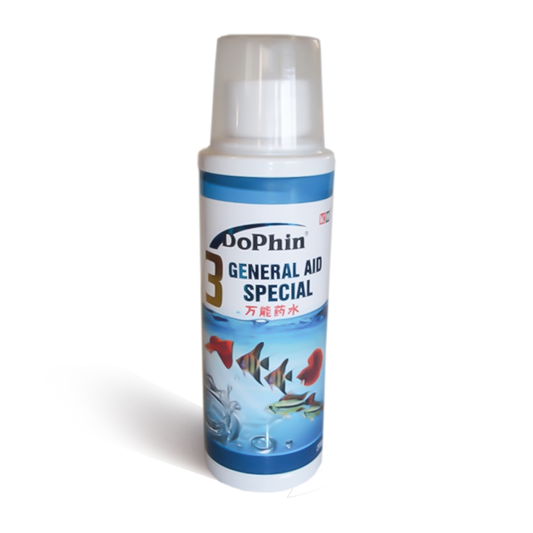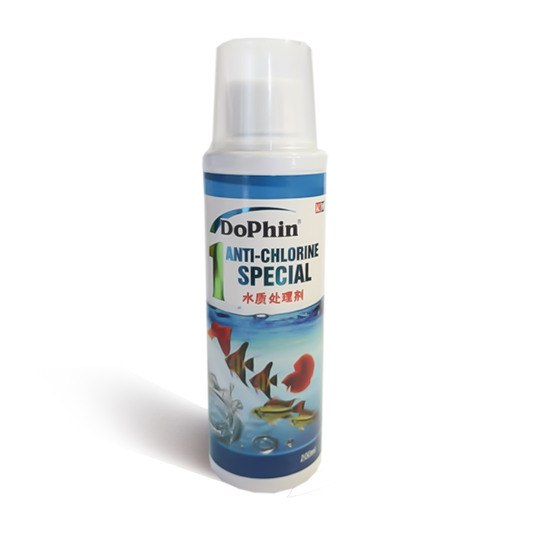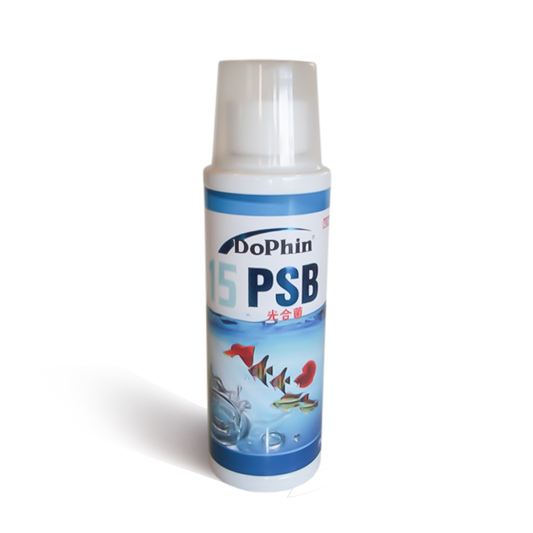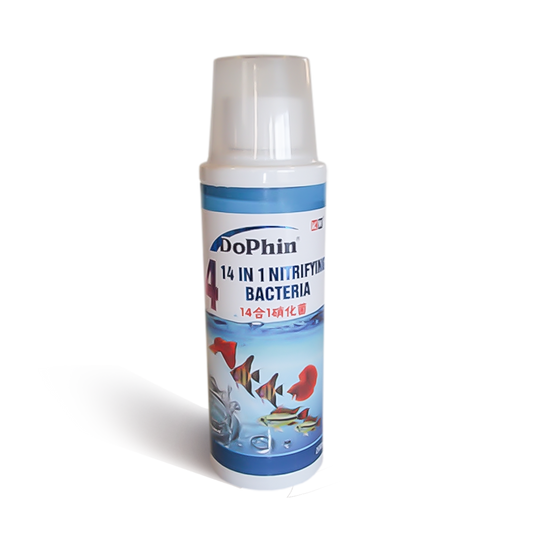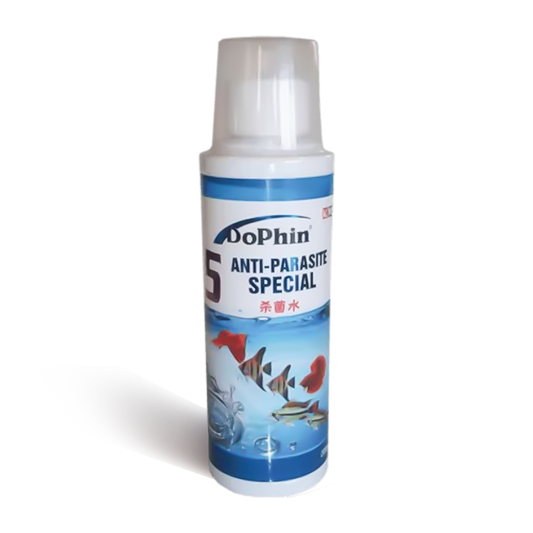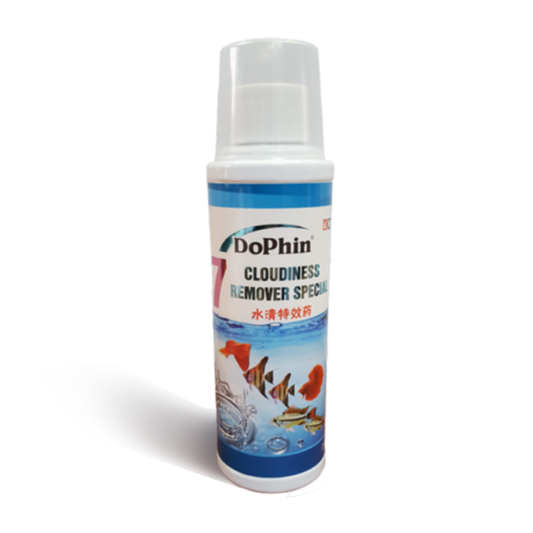When to use DoPhin® #4 in your Aquarium

Here's a breakdown of gill disease, fungus, flukes, and anchor worms, along with information on using DoPhin® #4 for treatment:
1. Gill Disease:
- Description: This is a general term for various problems affecting the fish's gills, the organs responsible for respiration.
- Symptoms: Rapid breathing, gasping at the water surface, clamped fins, pale gills, or excessive slime production on the gills.
- Causes: Bacterial infections, parasites (like flukes), poor water quality, ammonia or nitrite spikes, or injuries.
- DoPhin® #4: Might be effective depending on the cause. It targets parasites like flukes but wouldn't address bacterial infections directly.
2. Fungus:
- Description: Fungal infections can grow on fish externally, affecting the body, fins, or gills.
- Symptoms: White or fuzzy patches on the fish, clamped fins, or labored breathing.
- Causes: Stress, injuries, poor water quality, or secondary infections after other illnesses.
- DoPhin® #4: Not typically recommended for treating fungus. Specific DoPhin® #3 is usually more effective.
3. Flukes:
- Description: Microscopic parasites that attach to the fish's gills or skin, causing irritation and damage.
- Symptoms: Flashing (rapidly rubbing against objects), clamped fins, labored breathing, and excessive slime production.
- DoPhin® #4: Can be effective against flukes if used according to the instructions.
4. Anchor Worms:
- Description: Large parasitic worms that burrow into the fish's body, causing wounds and irritation.
- Symptoms: Visible white worms protruding from the fish's body, lethargy, flashing, or difficulty swimming.
- DoPhin® #4: Might be helpful depending on the severity of the infestation. It can target parasites, but some cases might require manual removal of the worms followed by medication.
General Recommendations:
- Accurate Diagnosis: While DoPhin® #4 tackles some issues, it's not a universal cure. Identifying the root cause (parasites, bacteria, fungus) is crucial for effective treatment.
- Water Quality: Maintain clean and well-oxygenated water during treatment. Poor water quality can worsen any existing condition.
- Quarantine: Isolate sick fish in a quarantine tank to prevent infecting healthy tank mates.
- Veterinarian Consultation: If unsure about the cause or DoPhin® #4 seems ineffective, consult a fish veterinarian for a proper diagnosis and treatment plan. They can advise on the most suitable medication and dosage for your specific situation.
Remember: Always follow the instructions on the DoPhin® #4 packaging carefully, including dosage and duration of treatment.




DoPhin® #4
-
DoPhin® #3 Aquarium All-in-One Care: Treat Multiple Fish Diseases Instantly 200ml
Vendor:DoPhinRegular price R 79.00Regular priceR 0.00Sale price R 79.00 -
DoPhin® #1 Anti-chlorine: Instantly Neutralize Chlorine & Heavy Metals 200ml
Vendor:DoPhinRegular price R 71.00Regular priceR 0.00Sale price R 71.00 -
DoPhin® #15 PSB Advanced Bio-Clean Formula for Crystal Clear Aquariums 200ml
Vendor:DoPhinRegular price R 128.00Regular priceR 0.00Sale price R 128.00 -
DoPhin® #14 -in-1 Aquarium Bacteria Booster & Conditioner 200ml
Vendor:DoPhinRegular price R 128.00Regular priceR 0.00Sale price R 128.00 -
DoPhin® #5 Aquarium Anti-Parasite Treatment - Broad-Spectrum Formula 200ml
Vendor:DoPhinRegular price R 143.00Regular priceR 0.00Sale price R 143.00 -
DoPhin® #7 Crystal Clear Aquarium Cloudiness Remover Solution #7 200ml
Vendor:DoPhinRegular price R 143.00Regular priceR 0.00Sale price R 143.00
1
/
of
6

